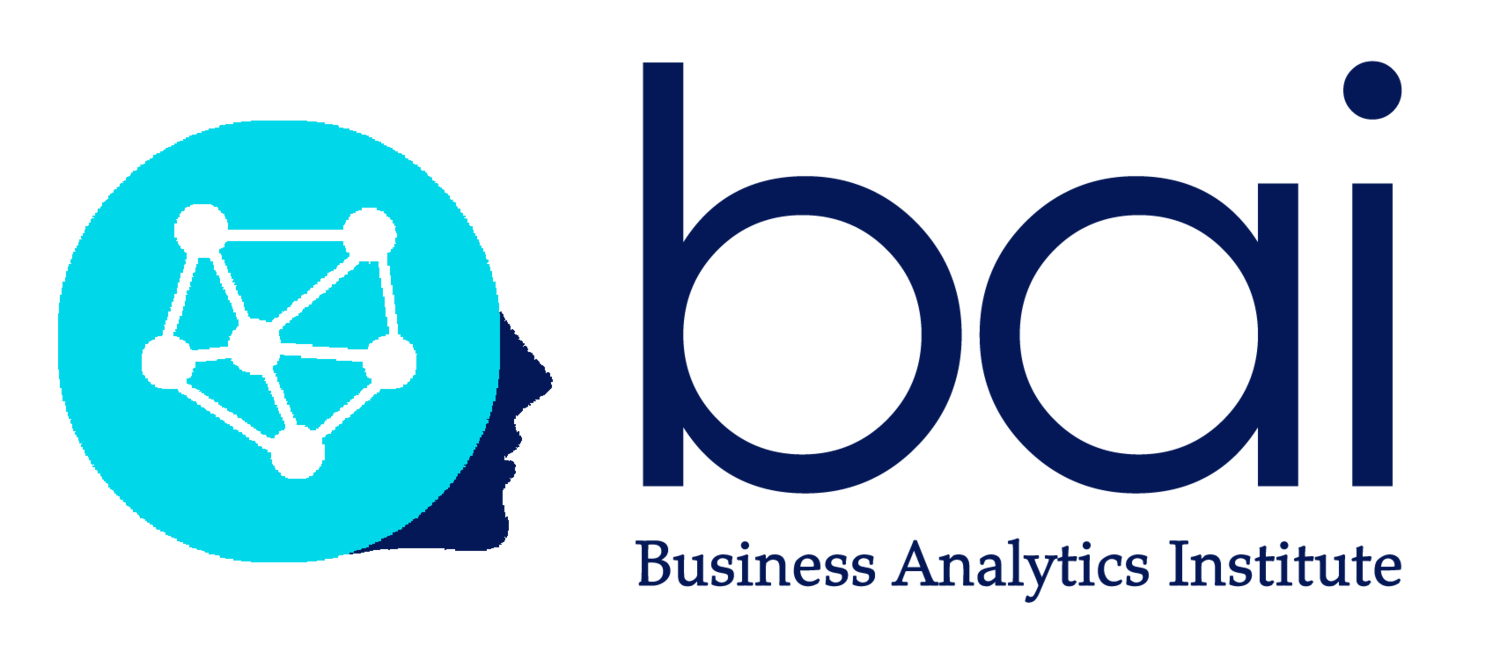The Business Analytics Institute offers a wide range of training, coaching and consulting services to help management improve their ability to take tough decisions.
BAI Europe
AI Readiness
An Intensive Three-Day Executive Workshop
Building Organizational Readiness for Collaborative Intelligence
📍 Paris, London, Zurich • Quarterly Intakes
Pre-Register for an Upcoming SessionWorkshop Overview
This intensive three-day executive workshop addresses the critical gap between AI's transformative potential and the practical challenges organizations face in successful implementations.
70%
of AI initiatives fail to deliver expected business value
8
critical dimensions of organizational AI readiness
3
intensive days of strategic transformation
90
day action plan with measurable outcomes
Business Imperative
Organizations across industries recognize AI as a competitive necessity, yet the challenge isn't technological innovation—it's organizational readiness. Companies that successfully deploy AI at scale systematically address data infrastructure, talent gaps, cultural resistance, regulatory complexity, and strategic alignment simultaneously.
The rise of Generative AI and agentic systems has fundamentally changed the stakes. Organizations must now navigate the complexities of human-AI collaboration, establish governance for autonomous AI agents, and develop sophisticated measurement frameworks to quantify business impact.
Target Audience
Senior executives, department heads, and strategic leaders responsible for:
Digital transformation initiatives
Technology investment decisions
Organizational change management
Risk and compliance oversight
Talent acquisition and development
AI governance and ethics
Business process optimization
Learning Objectives
By the end of this workshop, participants will:
AI Readiness Assessment
Assess your organization's true AI readiness across eight critical dimensions, including collaborative intelligence capabilities
Strategic Gap Analysis
Develop actionable strategies to address foundational gaps before technology deployment
Cultural Transformation
Build frameworks for managing cultural change and stakeholder resistance in human-AI collaborative environments
Governance Structures
Create governance structures for responsible AI implementation, including agentic system oversight
ROI Measurement
Establish comprehensive metrics and evaluation frameworks for measuring Generative AI ROI effectively
Collaborative Intelligence
Design collaborative intelligence workflows that maximize human-AI synergy and implement risk management for autonomous agents
Three-Day Agenda
Day 1: Foundation Assessment and Collaborative Intelligence Architecture
Morning Session
Organizational AI Readiness Audit
- Comprehensive assessment framework covering data quality, talent, culture, systems, and collaborative intelligence readiness
- Interactive diagnostic tools to identify organizational strengths and vulnerabilities
- Benchmarking against industry leaders and competitive landscape analysis
- Assessment of current human-AI interaction patterns and collaboration maturity
Afternoon Session
Data Infrastructure and Collaborative Intelligence Foundation
- Moving beyond data collection to AI-ready data architecture for collaborative systems
- Strategies for breaking down data silos and establishing data governance for human-AI workflows
- Case studies of successful data transformation initiatives supporting collaborative intelligence
- Hands-on workshop: Creating your data readiness roadmap for collaborative AI systems
Day 2: Talent Strategy, Cultural Transformation, and Agentic Systems
Morning Session
Bridging the AI Skills Gap for Collaborative Intelligence
- Understanding the evolving scope of AI talent needs: technical roles, AI collaboration specialists, and prompt engineers
- Build-versus-buy-versus-partner strategies for acquiring collaborative AI capabilities
- Creating internal AI literacy programs and upskilling initiatives for human-AI teamwork
- Compensation and retention strategies in a competitive talent market
- Training frameworks for effective human-AI collaboration
Afternoon Session
Managing Cultural Change and Agentic System Integration
- Understanding the psychology of AI adoption and common resistance patterns in collaborative environments
- Communication strategies that build trust in human-AI partnerships
- Change management frameworks specifically designed for collaborative intelligence implementations
- Introduction to agentic AI systems: capabilities, limitations, and organizational implications
- Workshop: Developing your organizational change plan for collaborative AI adoption
Day 3: Governance, Evaluation Frameworks, and Strategic Implementation
Morning Session
Regulatory Compliance, Ethical AI Governance, and Agentic System Oversight
- Navigating the evolving regulatory landscape for AI agents and collaborative systems
- Building internal governance frameworks for responsible AI use and autonomous agent deployment
- Risk management strategies for bias, privacy, transparency, and agent behavior
- Creating accountability structures and audit processes for human-AI collaborative outputs
- Establishing boundaries and controls for agentic AI systems
Afternoon Session
Strategic Implementation and Generative AI ROI Measurement
- Integration strategies for legacy systems and existing workflows with collaborative AI
- Vendor evaluation frameworks and avoiding technology lock-in in the Generative AI landscape
- Developing realistic timelines and managing stakeholder expectations for collaborative intelligence initiatives
- Comprehensive Generative AI Evaluation Framework: Quantitative metrics, qualitative measures, business process improvement indicators, and long-term strategic value assessment
- Workshop: Creating your 90-day action plan with specific Generative AI success metrics
Expected Outcomes
Immediate
Clear assessment of organizational AI readiness and gap identification, including collaborative intelligence capabilities
30 Days
Implementation of foundational improvements in data infrastructure, governance, and Generative AI evaluation frameworks
90 Days
Launch of cultural change initiatives, talent development programs, and pilot collaborative intelligence projects
6 Months
Measurable progress toward AI-ready organizational capacity with documented Generative AI business benefits
12 Months
Successful deployment of collaborative AI initiatives and agentic systems with clear ROI demonstration and continuous improvement processes
Investment Justification
The cost of this workshop represents a fraction of typical AI implementation budgets, yet addresses the primary factors that determine whether those investments succeed or fail.
Organizations that invest in comprehensive readiness planning, including collaborative intelligence frameworks and robust evaluation systems, reduce implementation risks, accelerate time-to-value, and achieve significantly higher ROI on subsequent AI initiatives.
✓
Thank You!
Your registration has been successfully submitted.
Our executive education team will contact you within 2 business days with detailed workshop information and upcoming session dates.
Redirecting in 5 seconds...
